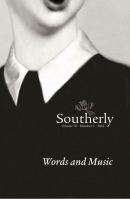On Tuesday 15 September, Tony Abbott gave his final statement to the press as Prime Minister of Australia. Video here. Having rendered Alan Jones and Scott Ludlam into verse, I feel obliged to give Mr Abbott a go. Here’s Part One of what I expect to be two parts:
The farewell
Kings and queens must die before the toast
‘Long live the King or Queen!’ is raised by folk,
but prime (and lesser) ministers can coast
from office still alive – and far from broke.
A vote is not a dagger. At the most
a mobile phone lurks in the plotter’s cloak,
and though the headlines say blood’s on the floor,
in Canberra that’s mostly metaphor.
Video 0:00–0:05
So Monday night last week, when overthrown
by secret ballot in the party room,
our ex-PM, his face as grim as stone,
went to a drunken party, not a tomb,
took fourteen hours to face a microphone.
12.30, puffy eyed beneath the boom,
he started with a frail attempt at cheer:
‘Quite-a-crowd today. Thank you for being here.’
No more ad libs. The rest came from the script
that someone had prepared while we were sleeping
and doing all the morning things he’d skipped,
or so it seemed: there may have been some weeping.
It wasn’t life-or-death, but if he slipped
he’d set a ruthless Twitter chorus cheeping.
This was a chance to dignify his exit,
to bare his statesman muscle and to flex it.
Video 0:05–0:45
‘For many here this is no easy day.
Such things are never easy for our country.
I pledge to make it easy as I may:
not wreck, snipe, undermine [my style’s effrontery
and swagger]. Leaking’s never been my way.
It’s only for our country’s good I’m hungry,
and our government’s success [not my successor’s
whom I won’t name, still less my predecessors’].
Video 0:45–1:16
‘I’ve said the top job’s no end in itself.
It’s all about the people whom you serve.
From Uluru to Continental Shelf,
this country’s wonder, more than I deserve,
I’ve seen. I want to thank [a humble elf]
the voters for this honour. [Oh the nerve
of those who took it from me!] This day’s tough,
but: join the game, play by its rules, they’re rough.
Video 1:16–1:54
‘I’ve held true to what I have believed.’
His head bobs there, a curtsey of the mind.
‘I’m proud of what in two years we’ve achieved:
more folk in jobs, and three free trade deals signed,
huge roadworks under way, and we’ve relieved
mine owners of bad Labor taxes, shined
a spotlight on bad Labor’s Union mates.’
A chopper drowns out half of all he states.
Video 1:54–2:20
‘… terror threats … deployed … the other side …
to bring our loved ones home … the boats have stopped …
compassion … refugees … [I may have lied
or bent the facts a little] … budget mopped …
billions … without principle the tide
of opposition … [Heaven knows I’ve copped
unprincipled hysteria for Pell,
and ‘Nope, nope, nope’, and kids in Nauru’s hell.]
Video 2:20–3:00
‘Of course, there’s much I had still wished to do:
To move things on for Noel’s and other mobs –
bring recognition, school, work, safety too.
My photo-op weeks broke new ground, no probs.
Ice and domestic violence wait in queue.
The wider world presents us with big jobs:
Wars far away are well within our range.
[But notice I don’t mention climate change.]
To be continued …
If you want to read some real poetry on the subject of our recent change of Prime Minister, I recommend the editorial of yesterday’s Saturday Paper. It begins, ‘It is no exaggeration to say Tony Abbott is the worst prime minister Australia has had,’ and builds from there.







